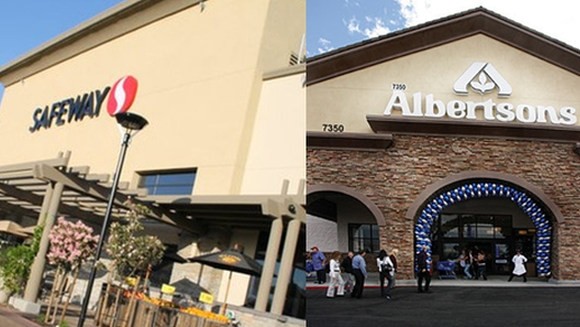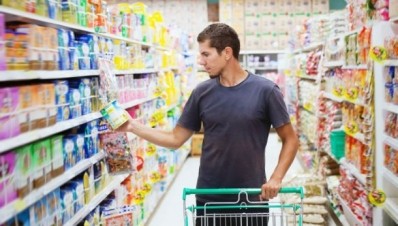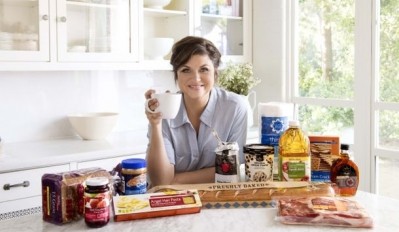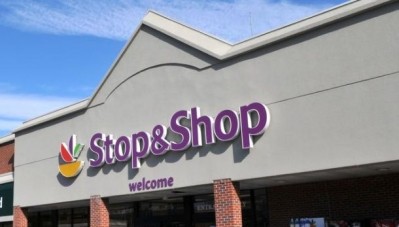Is the Safeway Albertsons merger good, bad or ugly news for suppliers?

First some facts and figures:
STORES: The combined entity operates 2,230 stores, 27 distribution facilities and 19 manufacturing plants in 34 states and the District of Columbia (168 stores are being sold to four FTC-approved buyers).
RETAIL BANNERS: Safeway, Vons, Pavilions, Randalls, Tom Thumb, Carrs, Albertsons, ACME, Jewel-Osco, Lucky, Shaw's, Star Market, Super Saver, United Supermarkets, Market Street and Amigos.
STRUCTURE: The new company comprises three regions and 14 retail divisions, supported by corporate offices in Boise, ID; Pleasanton, CA; and Phoenix, AZ.
REVENUES: Combined revenues top $60bn.
MANAGEMENT: Albertsons CEO Bob Miller is executive chairman; Safeway president and CEO Robert Edwards is president and CEO of the new company.
WHAT THEY SAY: "We plan to be the favorite local supermarket in every community we serve… We will do this by knowing, listening to, and delighting our customers; providing the right products at a compelling value; and delivering a superior shopping experience." Robert Edwards
"This merger creates a unified, strong organization that is dedicated to bringing a better shopping experience to more customers across the country. Our combined geographic footprint, vast range of brands and products, and service-oriented staff will enable us to meet evolving shopping preferences." Bob Miller
So what do market watchers think of the deal? FoodNavigator-USA quizzed three experts:
Mike Paglia, director, retail insights, Kantar Retail: As a supplier right now I’d be doing an audit of my trade spend with each retailer
Both retailers have demonstrated pretty meager growth over the past few years and so I don’t suddenly see them becoming this powerhouse, and scale is no predictor of success.
So what happens next? As a supplier right now I’d be doing an audit of my trade spend with each retailer as they will be going over each account, and seeing who got the better deals and that’s going to put pressure on people that deal with both of them. However, if you only supply one of them and things are going well you will have one common entry point for two very large businesses, so there is a volume bump opportunity.
The biggest question mark involves the ultimate structure of the company post-integration… but it’s fair to assume there will be increased complexity for customer teams who call on the combined company. Meanwhile, the complexity that comes with a decentralized company is likely to make ensuring execution more difficult as well.
In general, I think Safeway has done a better job of understanding shoppers, it’s built up an e-commerce business and it has done a lot of work on building its private label offering, while Albertsons was run more for a profit. But as the years have gone by I think Safeway started to look a lot more like Albertsons. It will also be interesting to see what happens with the Safeway loyalty card.
Dr Kurt Jetta, founder & CEO, TABS Group: I’ve heard things are going to get more decentralized
There will be synergies in distribution and warehousing, and if they merged banners there would be advertising synergies, but no one is talking about that. Both of them are down 2-3% in same store sales.
I’ve not talked to anyone that thinks this is going to go smoothly [CLICK HERE to see what KeVita boss Bill Moses thinks]. New Albertsons is a mess when it comes to new product introductions, promotional execution, whereas Safeway is much more centralized on buying and planning apart from sourcing of perimeter and deli items which are handled more locally.
I’ve heard things are going to get more decentralized, which is going to put up the costs of dealing with them and could create chaos in the short term. The only saving grace for suppliers is that it’s probably going to take them a long time to get their act together, but I expect they will come after people about pricing variances and start sending out bills for re-planogramming and so on as these costs always tend to be passed onto manufacturers.
Safeway is more progressive than Albertsons in terms of infrastructure and IT systems and generally better operationally - and a lot of Albertsons stores need an upgrade. However, while Safeway has tried everything from loyalty cards to digital coupons, premium private label, and so on, it hasn’t really translated into revenue growth.
And if you can’t be a success in some of the most prosperous parts of the country from San Francisco to Seattle, and you get run out of Chicago and Philadelphia, you’ve got to wonder whether all this stuff has really paid off. Albertsons got rid of its loyalty card and it didn’t do it any harm.
Jim Hertel, managing partner, Willard Bishop: If there is more local control over assortments and merchandising that’s potentially a positive
If there is more local control over assortments and merchandising that’s potentially a positive as they can be more nimble and responsive to consumer needs, although it can be a mixed blessing from a supplier perspective.
Some suppliers will be keen to get an early meeting and be proactive, as if you are the second or third player in any given category, the fear is that they will be coming to you and saying how much do you want to stay?
Safeway has been very energetic on private label and there could be opportunities to develop that across the combined portfolio.
The biggest challenge [in food retailing more generally] is for stores that are in the middle, not up-market or down-market/limited assortment; the worst place to be is where you have an 80 or 90% overlap in terms of center of store assortment with Walmart. If you’re just competing on price, you’ll lose.
What can give you a point of difference is private label, more fresh products, more local products and more unique products.
*AB Acquisition is controlled by an investor group led by Cerberus Capital Management, L.P.





![Dr Kurt Jetta: 'A&P was the largest account nobody cared about' [Picture: A&P].](/var/wrbm_gb_food_pharma/storage/images/_aliases/wrbm_medium/0/0/1/6/2636100-1-eng-GB/A-P-Chapter-11-filing-a-cautionary-tale-for-food-retailers-TABS-Group.jpg)







